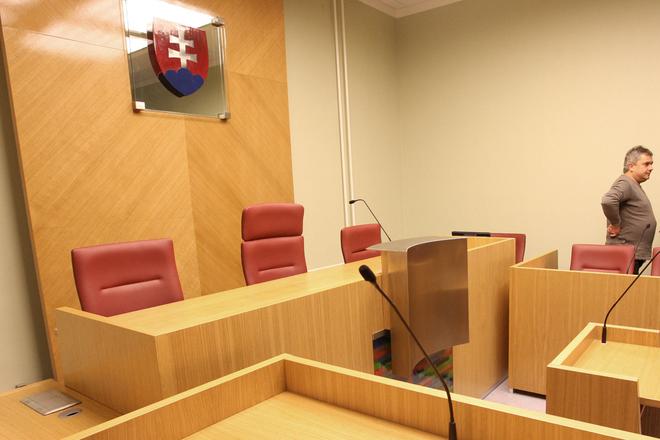The district court in Zvolen has issued a long-awaited verdict in the case of court expert in forestry Viera Petrášová who has sued her previous employer, the National Forestry Centre (NLC).
The court now decided that the notice she received in 2009 is invalid, due to discrimination, the non-governmental organisation Citizen, Democracy and Responsibility (ODZ) which represented her before the court informed in a press release.
The verdict however still is not final as NLC may appeal it.
“It’s important for me that after so many years the court finally decided to deal with what I took to the court in the first place – discrimination,” Petrášová said, as quoted in the press release.
She hopes their effort will not be in vain and will help to achieve justice in other similar situations.
Janka Debrecéniová of ODZ, who has been representing Petrášová, considers the verdict a decision which “sensitively and convincingly reflects many forms of discriminatory behaviour women in Slovakia face every day from the side of various employers, including public institutions”.
“Though the case of Mrs Petrášová is far from over, we hope the Zvolen court ruling will be one of the signals that the discriminatory behaviour of employers doesn’t pay off and the state can deal with it,” Debrecéniová said, as quoted in the press release.
The case
The dispute goes back to 2008 when Petrášová prepared two project ideas for projects approved by the Agricultural Paying Agency (PPA). She subsequently prepared both projects worth altogether more than 4 million Slovak crowns. After she completed them, NLC simply did not submit them to PPA.
This happened shortly after a new head of NLC was appointed. It was a man whom Petrášová substituted for at the forestry department at the Agriculture Ministry in 1999. Nobody explained to Petrášová why the projects had not been submitted.
Moreover, NLC has repeatedly changed the reasons for not submitting her projects during the court proceedings. Rather than Petrášová’s projects, the centre submitted a project from her colleague who had lower education and less experience, the press release reads.
Following other incidents, NLC proposed Petrášová to change her working contract, explaining that she did not have any projects she would coordinate. With such a change, her salary would drop and her career progress would be restricted.
Petrášová considered the change discriminatory and refused to sign it. She was subsequently dismissed, with her employer claiming that due to organisational changes she was made redundant. This happened despite the fact that the NLC’s collective agreement stipulates that in case of organisational changes, employees are considered based on their experience and results.
Petrášová however had excellent results, the press release reads.
The court in Zvolen issued a verdict making the notice invalid already in 2012, but it refused to state discrimination as a reason. The Banská Bystrica Regional Court confirmed the ruling in 2013.
It was, however, dismissed by the Supreme Court in 2015, which returned the case to the district court and ordered it to deal with the complaint that the notice was discriminatory, ODZ informed.



 Courtroom, illustrative stock photo (source: Sme)
Courtroom, illustrative stock photo (source: Sme)